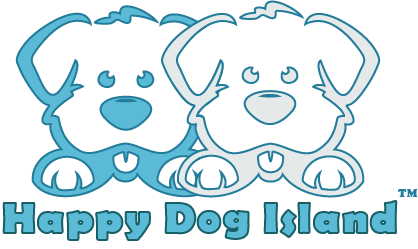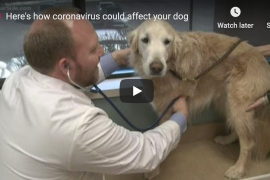What Should My Dog Eat?
Big, Big, Business: Pet food is now nearly a $23 billion per year industry in the United States.
The popular kibble many dogs eat can trace its roots all the way back to England in the 1860’s, when the first dog biscuit was invented. But the dog food industry did not really take off in the U.S. until the breakfast cereal manufacturers began producing dry, grain-flour based dog foods that included dried meat scraps to create a balanced diet.

In the early days, kibble was made from a dough that included grain flour, meat meals, dairy products and vitamins and minerals. The dough was baked in large pans and then broken into small pieces. Next came the extrusion process, in which the dough was passed through a rotary machine to shape the kibble pieces before baking.
Now, kibble is made by extruding the dough through a die then expanding the pieces with steam and air, making them porous. These are then coated with liquid fats, milk products, or other carbohydrates for flavoring.
Just like people, dogs’ health and good nutrition depends on consuming a combination of fats, carbohydrates, proteins, vitamins, minerals and water. If these elements are in the proper balance, growth of young pups can be enhanced, energy level for adult dogs can be maintained and their bodies’ needs for daily cellular repair can be supplied.
Each of these elements plays a key role in your dog’s health. Protein is the engine for growth and development, building connective tissue, healing from injury, and for maintenance of a healthy coat.
Fat is the delivery mechanism for vitamins and has benefits for his skin, paw pads and coat. Fats are particularly important for maintaining your dog’s healthy coat and skin. Sometimes dogs need supplements of Omega fatty acids to their diet to help deal with persistent skin ailments.
Carbohydrates should make up a significant part of the normal dog diet, researchers believe. In commercial dog food, the carbohydrate can come in many forms. Corn is currently the most used product in dog food; others include rice, wheat, and soybeans. Many dogs can't digest corn.
Dogs react differently to these elements. Some dogs can become allergic to one or more of them.
Vitamins support the absorption of fats and carbohydrates and are catalysts for the chemical reactions that occur in all living creatures. The key is the balance, providing the proper amounts of these important elements.
A good commercial dog food has these in the proper amounts and thus you will probably not need to add vitamin or mineral supplements to your dog’s diet, except when they have unusual circumstances and need a boost, such as when recovering from an injury, suffering from skin conditions, having a problem with fleas or other parasites, or during pregnancy.
Pet owners need to be careful about giving their dogs vitamin supplements and seek advice from their vet before doing so. Excess vitamins in a dog’s system can cause health problems, just as vitamin deficiencies can.
Minerals play an important role in bone growth, metabolism, and regulation of the nervous system. Calcium and phosphorous work together to promote bone growth and strength, and must be in the proper ratio or problems can occur. Potassium deficiency can cause muscle weakness. Excess sodium can lead to hypertension in dogs.



